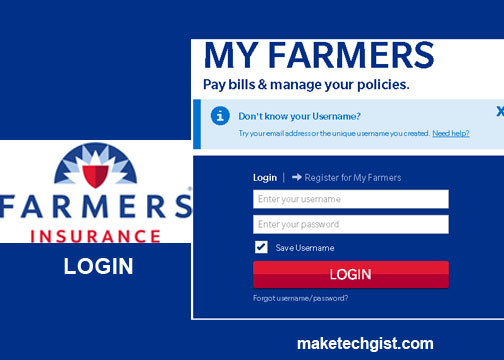What is Life Insurance?
Life insurance is an agreement between an insurance company and a policy owner. A life insurance policy provides a formal assurance the insurance company pays a sum of money known as death benefit to the entitled beneficiaries when the insured person dies in exchange of the premium paid by the policyholder when he was alive.

When applying for the life insurance coverage, you must reveal the past and current health situation and injuries to apply for the coverage. Keep in mind that before the death of the insured person, the policyholder must a single premium upfront or regular premiums over time before beneficiary can receive the benefits. When choosing a life insurance company, it is best advised to know the financial strength of the company issuing the coverage, however, in a situation where the insurer can’t pay the claims, the State guaranty funds might help out. You can receive this life insurance benefit payout in various ways which include installment payments, annuities, lump-sum payments, and retained asset accounts.
The beneficiary after receiving the payment can use the money for different purposes which include paying bills in the home, paying the children’s fees through school or college.
How Does Life Insurance Work?
Life insurance is a type of insurance contract agreement. When you are alive and you buy a life insurance policy, you agree to pay premiums to maintain your coverage. If you die in the process, the life insurance company will pay out death benefits to the person you named or added as beneficiary on your policy.
You can get some life insurance companies that offer policies for both death and living benefits. The living benefits has a whole lot of importance and offers assistance in unexpected circumstances when you are seriously sick and might lead to death and you need money to cater for medical bills. You can get funds from your policy’s death benefits while you are still alive.
What Can I Use Life Insurance For?
Life insurance can serve many purposes. As a matter of fact, this depends on the life insurance policy you buy. When you receive your death benefits, you can use to cater for many expenses especially when a partner dies leaving the children alongside other duties. The Best life insurance policy will cover the expenses of the financial aspect by paying for the school fees of the children, personal debt such as student loans and credit cards, funeral and burial expenses, daily feeding expenses, and many other expenses to mention but few.
Life insurance policy normally covers natural and accidental causes of death and murder. Sometimes, some policy covers suicide but you have to properly check and confirm the kind of policy you want to buy. In cases like this, beneficiaries may be required to meet some strict conditions.
READ ALSO >>>>>>>>>>>>>>>>>>>> How to Buy the Best Homeowners Insurance
State Farm Car Insurance Review 2022: Pros & Cons
Types of Life Insurance
There are two main types of life insurance – Term life insurance and permanent life insurance.
Term life insurance: this type of life insurance offers coverage for a specific amount of time and this depends on the insurance company. Plus, premium payment remains the same amount for the duration of the policy. The duration of coverage policy is often in 10, 15, 20, 25 or 30 years.
If you die during the term of your policy, your beneficiary can file for a claim and receive the death benefits. Keep in mind that once the term policy expires, you may not get guaranteed renewability, this means you will not be able to renew your coverage until after one year.
Term insurance does not have cash value and you can’t borrow money against your death benefits but some term life insurance policies can be converted into whole or universal policies or even extended but it comes with much higher premiums than the original amount.
Permanent life insurance: this type of life insurance policy offers you lifetime coverage but more costly than term life insurance because it has cash value and last for the entire duration of your life. Plus, it combines cash value account and death benefit together. Permanent life insurance allows the insured person to borrow against their life insurance policy and if they don’t pay it back or even end their policy, the beneficiaries will get a smaller payout.
There are two types of Permanent life insurance policies – whole and universal life insurance policies. Both of them cover you as a policyholder until you die except for some reasons, you stop paying your premiums. If you are borrowing from any of these policies, your death benefits contract will gradually diminish.
How to Choose the Right Life Insurance Policy
Choosing the right type of life insurance policy might be difficult but consider the various important factors below when you want to purchase your life insurance policy;
- Decide to choose either a term life or permanent life policy
- The amount of coverage you want to buy that suits your needs and budget. To determine the amount you want, you can make use of the life insurance calculator
- The amount of money you will pay for premium
- Carefully choose the best rider that you like to include in your life insurance policy
- Check the life insurance quotes for each policy
Keep in mind that if you are going for a Term life insurance policy, it is a very option if you have small or limited budget but it is only for a specific period of time and no cash value insurance policy but the rate is lower than permanent while permanent insurance policy last for throughout your entire lifetime and you can also build your cash value and gives you more money in the future. But remember that the cash value is only meant for you while you are alive and it is not meant for your beneficiaries. When you die, any cash value you have belongs to your life insurance company but your beneficiaries will get your policy’s death benefits. Although some insurance companies offer death benefit plus cash value but it is very expensive.
READ ALSO >>>>>>>>>>>>>>>>>>>>> State Farm Renters Insurance Reviews 2022 – Everything You Need to Know
What Is an Insurance Claim? – Types of insurance Claim, Check and Process
How Much Does Life Insurance Cost?
The cost of life insurance is dependent on several factors which include the type of life insurance you purchase, health, the insurance company you are buying the policy from, lifestyle, family history, age, wellness, sex, and many more. Take for instance; if you buy a life coverage policy when you are young, you are likely to pay less because your chance of dying is small. Females usually pay less than males when it comes to life insurance because females have a life expectancy almost five years longer than males according to report from National Center for Health Statistics.
How to Choose the Amount of your Life Insurance Coverage
To know the amount you need for your life insurance policy, simply follow the steps below;
- Calculate all the cost you want to cover which include mortgage, college cost for your children, and income replacement for your work.
- From the total amount calculated, deduct the amount that your family can use to cater for the expenses, this include existing life insurance and savings. The total number is the amount of money you need to buy your life insurance policy. Keep in mind that if after your calculation, it appears expensive, check out for the insurer with affordable rate that meet your budget.
How to Get a Life Insurance Quote
To determine the amount of life insurance coverage you are paying for is by getting life insurance quotes from your insurer or by comparing a few of them. Keep in that insurance quotes are free and you will not be charged for it. However, you can locate any of the life insurance agents of few companies you want to compare. These insurance company agents will guide you and deliver any information you need to know. This includes the best prices based on your health, sex, age, and amount of coverage you want.
When you get a quote which you want to use to buy your life insurance policy, you can begin a formal application which will require you to field some questions and provide necessary answers in details that can make you apply for a particular policy type, duration of the policy, and the amount of the coverage.
Once you have submitted the application, you may be required to go through a life insurance medical exam by some insurance companies. You can do this exam at your convenience such as your home, work, or make use of a local exam office. Your application can be processed depending on the insurer and policy type. If you are younger usually less than 60 years, you can a get fast life insurance which includes instant approval to qualify from some insurance companies. Some insurance companies make use of “accelerated writing” to skip the medical exam and get your application processed in one day or a week depending on the company. While other insurance companies rely on the traditional method of using the medical exam for approval and this may take about a month.
How to Choose a Life Insurance Beneficiary
A beneficiary is the people that claims or receive your death benefits when you die. When you are buying your life insurance policy, you will be required to assign one or more beneficiaries who will receive your death benefits. It is important you notify your lawyer or attorney on the name of the beneficiary so that the beneficiary can work with your financial structure to sort out all the expenses laid out by you before you pass away. Always contact your insurance companies to update your beneficiary regularly in case of some unplanned life events like divorce, or many other factors. A life insurance beneficiary can be the following;
- A spouse
- Adult child
- Parent
- Business partner
- Charitable organization
- A trust
- Sibling
How to File Insurance Claim as a Beneficiary
To get your death benefit paid out from a life insurance policy, you must file a claim with the life insurance company as the beneficiary. Filing a claim is dependent on the insurance company’s polices, you can either file a claim online or through a paper claims filing. Most companies usually require paper filing because it will require you to provide other supporting documents and proofs to process your claim and the payment.
Beneficiaries may be required to provide a copy of your policy, claims form, original copy of the death certificate either from the hospital or nursing home or county or municipality where the insured person died. You can get your claim payout on time or sometimes it may take long depending on the processes involved and the insurance company. If you are able to provide all the documents needed, you can get your payout in a week.
READ ALSO >>>>>>>>>>>>>>>>>> State Farm Insurance Review 2022: Pros & Cons
How to Speak with State Farm Customer Service Representative – Contact State Farm Easily
How to File a Car Insurance Claim with Allstate – Allstate Car Accident Claim






